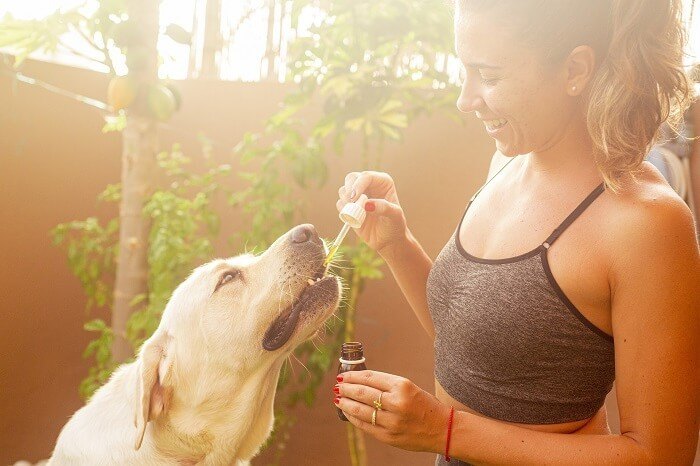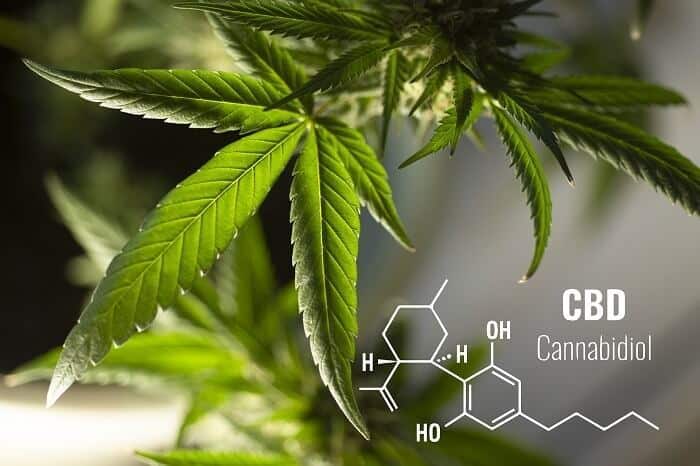It is essential to keep in mind that there is relatively little research on the usage of herbs and spices with dogs. Many of these products are also available as supplements. In the United States, the FDA does not monitor supplements as rigorously as it does medicines. Generally, the FDA does not act until a dietary supplement causes significant harm or illness. As a result, manufacturers are exempt from establishing the ingredients’ safety or ensuring their accuracy.
For dogs, vitamins are essential, just as they are in ours. Herbs and spices are a fantastic source of vitamins and antioxidants that can help your dog’s immune system and digestive system.

Herbs and spices are used as a medicinal treatment for your dog when they are sick and their excellent additional benefits. One of the beneficial herbs is CBD gummies. There are several best CBD gummies in 2022 available with the help of Vitamin B12 D3.
While feeding a dog, the right balance of nutrients is crucial. Daily, animals (people also) need protein, water, lipids, vitamins, carbs, and minerals to function correctly. Pet food producers put much effort into determining the exact formula for their products to supply everything your dog requires regularly.
There are diets tailored for various life phases (such as pups or senior dogs), hypoallergenic nutrition, and formulas to control specific health concerns like heart disease and kidney disease.
There is a particular reason for each ingredient in your dog’s food. Your dog wouldn’t be able to maintain muscular tone, grow, repair muscles, teeth, and bones, perform routine everyday activities with ease, or fight infection if they didn’t get enough nutrients. Proteins are an energy source that also aids muscle function and growth. Fats provide you energy, assist your brain work, and keep your skin and hair looking good. Carbohydrates provide a quick energy source for your dog, allowing him to be active and enthusiastic. Minerals and vitamins play a vital role in the contraction of muscles, the conduction of nerves, and disease prevention.
Herbs That Are Safe For Dogs to Consume
Catnip

Catnip
Catnip belongs to the mint family. It promotes hunger, assists digestion, helps calm the agitated animals, facilitates peaceful sleep, and is well known for generating euphoria in cats. Catnip also works as a mosquito repellent! Chromium, iron, manganese, potassium, selenium, and other minerals, including vitamins A and C, are all present in catnip.
For many dogs, speeding along the highway is a peculiar experience that might cause them to get disoriented, queasy, or dizzy. Anti-nausea drugs for dogs are beneficial, but they often leave dogs disoriented.
Dandelion
Dandelion leaves contain more vitamin A than carrots, and the root contains inulin, a soluble fiber that enhances the growth rate of good bacteria in the intestine. Moreover, dandelion contains calcium, fiber, folate, iron, magnesium, manganese, phosphorus, potassium, silicon, zinc, and calcium, fiber, folate, iron, magnesium, manganese phosphorus, potassium, silica, and zinc.

Dandelion leaves
Dandelion strengthens dental enamel and functions as a blood tonic while supporting liver function. It promotes healthy teeth and bones while also supporting the cardiovascular system.
A dog’s body absorbs it quickly, making it an excellent supplement to its regular diet. There is also no substitute for it. To replace the benefits, it takes a combination of herbs.
Dandelion leaves are excellent for dogs suffering from persistent indigestion or flatulence.
CBD

Cannabis leaves
CBD oils for dogs are ideal for dogs who have separation anxiety or are apprehensive. These flavored gummies aid in joint flexibility, healthy inflammatory relaxation, and stiffness response while supporting your dog’s immune system.
Give your dog no marijuana or any product containing tetrahydrocannabinol (THC), marijuana’s main psychoactive component.
When taken in conjunction with other therapies, CBD-based products, on the other hand, may help enhance your dog’s quality of life.
CBD also treats a range of ailments, including pain, arthritis, anxiety, seizures, and even cancer.
Oregano

Oregano leaves
Oregano is an herb known as the “cure in the cabinet.” The antioxidant content of oregano is higher than that of apples and blueberries! It contains the antibacterial oils thymol and carvacrol, volatile oils.
Oregano tea can help reduce muscle discomfort and soothe an upset stomach. It is beneficial to your dog’s digestive tract. It’s high in flavonoids, which means it has a robust flavor. As a result, you won’t need to put much on your dog’s food to get them to eat it.
Oregano is also an antibacterial herb. Oregano oil is highly potent. If you’re planning to apply it topically, dilute it first. It is toxic to dogs and causes gastrointestinal disorders such as vomiting and diarrhea when misused.
Parsley
Parsley is the most broadly used herb globally, in addition to one of the leading focused meals sources. It’s high in vitamins A, C, and K, iron, folate, and minerals. It also includes several volatile oils, including myristin, which can prevent tumor formation, particularly in the lungs. It also contains histidine, an amino acid that slows the growth of tumors. Parsley is a “chemoprotective” food. It can help neutralize cancer-causing agents like benzopyrenes found in cigarette smoke.
First, to make parsley tea, steep four teaspoons of clean or two teaspoons of dried parsley in one cup of boiling water. Sprinkle parsley with water, cover it in a paper towel, and store it in a plastic bag to keep it fresh. Alternatively, place parsley stems in a glass of water and chill.

Parsley
Parsley is a healthy way to spice up your dog’s meal. It can help settle a dog’s stomach and freshen its breath. You may have noticed that it’s a common element in dog treats.
Antioxidants and vitamins abound in parsley. It has vitamin K, which aids in strengthening bones and preventing fractures. If your dog is overweight, adding fresh parsley to their food may aid in the removal of extra fat from their blood.
As you can see, there is a range of herbs that one can use to assist your dog stay calm and relieve anxiety. If you’re going to diffuse essential oils, keep in mind that dogs’ noses are pretty sensitive. The diffused oils may be too potent, causing them to sneeze.
If your dog starts coughing, sneezing, or rubbing his face, dilute the oils or cease diffusing them altogether.
To summarize, dogs can consume fresh herbs. However, not all herbs are safe. Use any of the above-mentioned safe herbs to make a batch of homemade dog treats.
When you feed your dog a new spice or herb, keep a close eye on them. Keep an eye out for symptoms of a stomach ache, and although you can use many herbs homeopathically, see your veterinarian before treating your dog at home.


